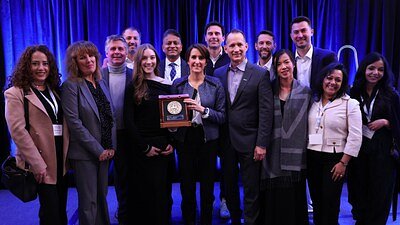
New Immunization Poised to Transform Infant Care, But Cost Questions Remain
A breakthrough antibody offering strong protection against RSV is gaining traction in Canada. While clinical trials show promising results, affordability and equitable access remain key challenges for widespread implementation.
New Immunization Poised to Transform Infant Care, But Cost Questions Remain
OTTAWA, ON – November 20, 2025
A new immunization offering significant protection against respiratory syncytial virus (RSV) is poised to reshape infant care in Canada, following a positive recommendation from the National Advisory Committee on Immunization (NACI) and recent approval by Health Canada. Sanofi’s Beyfortus (nirsevimab), a long-acting monoclonal antibody, has demonstrated a substantial reduction in RSV-related hospitalizations in clinical trials. However, questions regarding cost-effectiveness and equitable access remain as provinces weigh the implementation of universal immunization programs.
A Potential Breakthrough in RSV Prevention
For years, RSV has been a leading cause of hospitalization among infants, causing significant strain on the healthcare system and anxiety for parents. The virus can lead to bronchiolitis and pneumonia, particularly in vulnerable populations. Clinical trials show Beyfortus offers a robust preventative measure, with data indicating an approximately 80% reduction in RSV-related hospitalizations.
“The results are incredibly promising,” says one public health official. “We’re looking at a potential game-changer in how we protect our youngest patients. A single dose could cover an entire RSV season, eliminating the need for repeated interventions.”
The recommendation from NACI is a significant step towards widespread adoption. While the committee initially suggested a phased approach, prioritizing infants at higher risk, they strongly advocate for building towards universal immunization. This shift in strategy underscores the potential for Beyfortus to dramatically reduce the burden of RSV on the healthcare system.
Cost and Access: Navigating the Implementation Challenges
Despite the clinical benefits, the implementation of a universal immunization program hinges on affordability. The cost of Beyfortus, ranging from $800 to $900 per dose, presents a considerable financial hurdle for provincial healthcare budgets.
“The cost is definitely a concern,” admits a healthcare economist. “While the long-term benefits could outweigh the initial investment, provinces will need to carefully consider their budgets and explore potential funding models.”
Several provinces have already begun implementing publicly funded programs, making the immunization available free of charge to all infants. Others are prioritizing high-risk infants, such as premature babies and those with underlying health conditions. This patchwork approach raises concerns about equitable access and the potential for disparities in care.
“It’s crucial that all infants have access to this protection, regardless of their socioeconomic status or geographic location,” states a pediatrician. “A tiered system could exacerbate existing health inequities.”
Cost-effectiveness analyses suggest that a universal immunization program could be economically viable, particularly if the price per dose is reduced. One study estimates that a program could prevent over 47,000 RSV-related health events and generate cost savings of approximately $45 million. However, these calculations are sensitive to assumptions about pricing and the prevalence of RSV.
Beyond the Antibody: Addressing Regional Disparities and Innovation
The impact of RSV is not evenly distributed across Canada. First Nations, Métis and Inuit communities, as well as those living in remote or northern regions, experience disproportionately higher rates of RSV infection and hospitalization. Factors contributing to this disparity include overcrowded housing, limited access to healthcare, and underlying social determinants of health.
“We need to be mindful of these disparities and ensure that immunization programs are culturally sensitive and accessible to all communities,” says a public health leader. “This requires a collaborative approach involving Indigenous organizations and local healthcare providers.”
Beyond Beyfortus, the RSV landscape is evolving rapidly. Several other companies are developing innovative prevention strategies, including maternal vaccines and other monoclonal antibodies. Pfizer’s Abrysvo, a maternal RSV vaccine, was recently approved and offers a different approach to protecting infants by conferring immunity through the mother. This increase in market competition presents both opportunities and challenges.
“Innovation is driving down costs and expanding access,” explains a pharmaceutical analyst. “We’re entering a new era in RSV prevention, with multiple options available to protect infants and older adults.”
While the future of RSV prevention looks promising, ongoing research and collaboration will be essential to ensure that these advancements translate into improved health outcomes for all Canadians. Provinces continue to grapple with implementation challenges and funding models. The coming months will be critical as they navigate these complexities and strive to provide equitable access to this potentially life-saving immunization.
